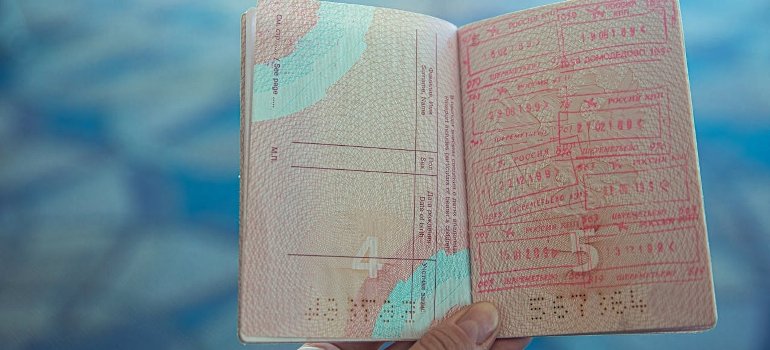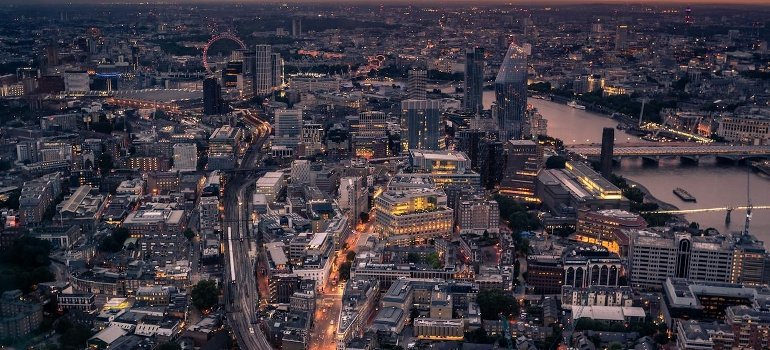Moving from Boston to London: How to Handle Visas, Housing, and Shipping

Get a Free Moving Quote Now!
Start Your International Moving Journey





Moving from Boston to London would be stressful and a big turning point in your life, but you can reduce that stress by focusing on three essentials:: getting the right visa, finding housing options, and arranging shipping services to UK prior to your move. Handling these things correctly, knowing how much they are going to cost — you can make the change with less surprises and a lot more confidence.
Visas: What You Need Before Leaving Boston
You will need the right UK visa before you can move to London. The Skilled Worker visa is the most common way for most professionals to get to the UK. It needs a job offer from a UK employer that has been confirmed and proof that your job meets the required skill and salary levels.
The Global Talent visa is less rigid and you don’t require sponsorship if you work in a sector like science, technology, research or the arts. You might be able to get UK Ancestry visa if you have a grandparent born in the UK. This will allow you to live and work in the UK for up to five years.

How the Process Works
- Use the UK government’s website to send in your application online.
- Go to a biometric appointment in the U.S.
- Upload documents like your passport, job information, or proof of funds.
- Pay the visa fee and the yearly healthcare fee.
It generally takes several weeks to approve most applications. The most common reasons that delays occur are missing paperwork, bad timing or wrong uploads.
What Can Cause Delays
- Certificate of Sponsorship Not Found
- Scans of passports that are blurry
- Documents with different names
- Biometric appointments that are late
- Missing marriage or birth certificates for dependents
- Making travel plans before getting approval
To avoid delays, check all uploads twice, finish biometric appointments early, and use priority processing if you need to get things done quickly.
Cost of Moving From Boston to London
Having a realistic idea of how much money it will take to move abroad lets you make a better plan. Costs will depend on what visa you have, how you live and what you choose to ship, but here’s an estimate of the cost of a typical move between the two cities.
Typical Cost Breakdown
Visa & Government Fees
- Visa for skilled workers: $900 to $1,400
- Extra charge for healthcare: about $1,300 a year
- Biometric fee: $20 to $30
Flights
- One-way from Boston to London: $350 to $900
Housing
- For a shorter stay, that is $1,500 to $4,000 a month.
- A one (1) bedroom rental in London ranges from £1,600 to £2,400 a month.
- Monthly rent ranges from £2,200 to £3,500 for a two-bedroom apartment.
International Shipping
- $3,000 to $8,000 for a 20-foot container
- Air freight costs between $1,000 and $4,000.
- 1–3% of the value of the shipment for insurance
Other Setup Costs
- £1,200 to £2,000 a-year for the council tax
- Utilities and internet run an extra £150 to £250 a month.
- Furniture and appliances £500-£2,500
These figures help you set a realistic budget, and let you know beforehand what to ship or sell, and what to repurchase upon your arrival.
Housing: How to Secure a Home in London
From Boston it is very difficult to try and find a place to live because most London landlords want to meet you in person. Which is why many expats begin in temporary housing until they can time the right visit to neighborhoods for themselves.

Popular Neighborhoods for Newcomers
- Fulham is a green, family-friendly area with quick Tube connections. £2,000–£2,800 for a two-bedroom.
- One of the best neighborhoods in Central London is Notting Hill. Bigger flats generally are £3,000 or more.
- Clapham is a bit more about the youngsters, there’s nightlife and it’s slightly cheaper in rent.
Your commute, schools options, health care enrollment and visa paperwork all depend on your location so mind the gap before taking decision.
How Renting in London Differs From Boston
- Most leases last for 6 or 12 months.
- Five weeks’ worth of rent is the deposit.
- People who live in the house pay council tax.
- “Unfurnished” could mean that there are no appliances.
- A UK guarantor is often needed by landlords.
- Be ready to act quickly because good apartments go quickly.
How to Find Housing Before You Arrive
- Look into Rightmove and Zoopla
- Rent an Airbnb or serviced apartment as a short-term home.
- Enlist friends in the area to scout apartments.
- Reach out to local letting agents but be prepared to act fast.
- Hire relocation professionals if you need help moving.
Shipping: Moving Your Belongings Overseas
To send your household goods to London, you need to plan in advance, complete customs paperwork and consider how long it will take.
Methods and Timeframes
- Shipping by ocean takes 4 to 8 weeks.
- Air freight takes one to two weeks (best for important things).
What to Bring vs. Leave Behind
Bring
- Clothing & essentials
- Laptops/phones with dual voltage
- Sentimental items
- Compact electronics
Leave
- Large furniture (London homes are smaller)
- U.S. appliances requiring high-wattage converters
- Bulky, replaceable household goods
Downsizing makes your container smaller and lowers your costs.
Transfer of Residence (ToR1) Rules
To keep from having to pay taxes on your personal things:
- Before shipping, get ToR1 approval
- Prove that you lived in a country outside the UK for at least 12 months.
- Give them papers like a job offer, a visa, or a lease.
- Check that all of your inventory lists match your shipment.
If you do not have ToR1 approval, you could have to pay VAT and wait longer at UK customs.
How to Get Ready
- Get quotes from a number of international moving companies.
- Make a list of all the things you own in detail.
- Buy shipping insurance
- Make sure to clearly label boxes for customs.
- Make sure you can get to London streets and buildings for delivery.

The Right Plan Makes a Move Go Smoothly
It’s a lot easier to decide whether you want to move from Boston to London when you learn what is required for your visa, what kind of housing appeals to you, how — and for what price — does someone ship their stuff? Preparing early and working with experienced professionals can reduce stress and help you settle into London confidently.
